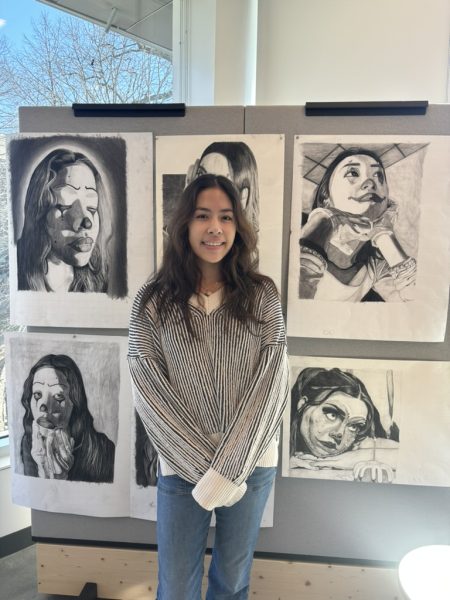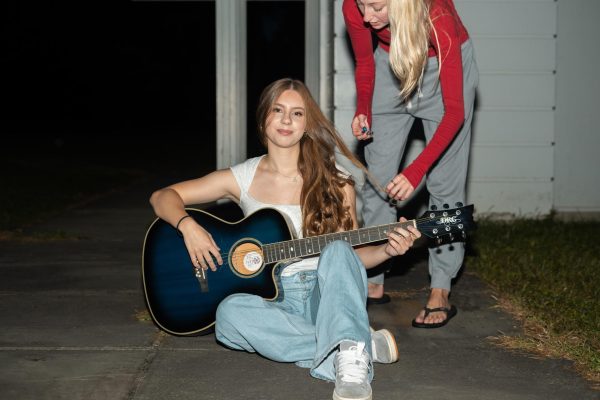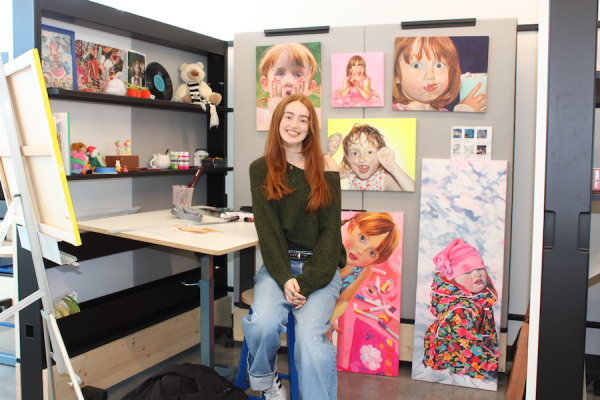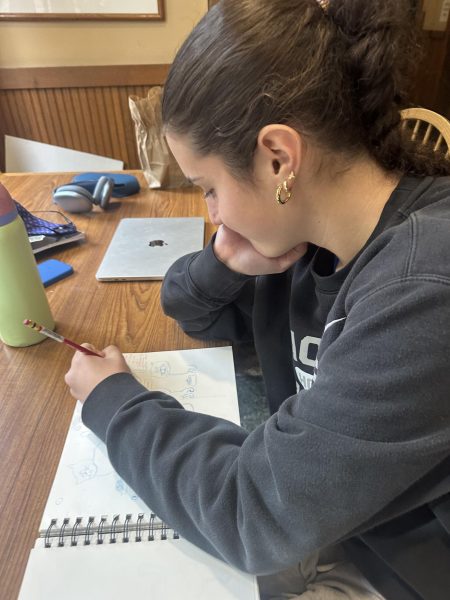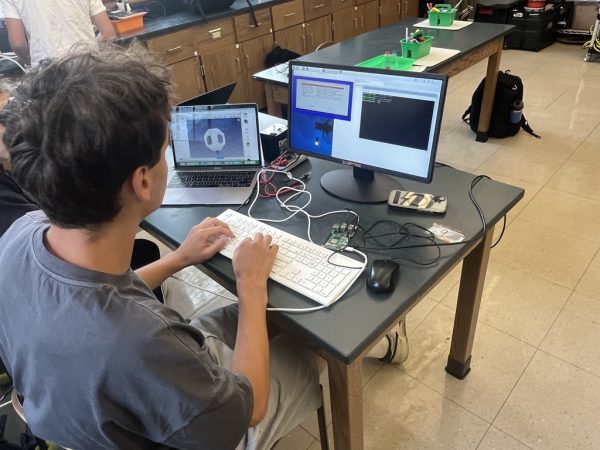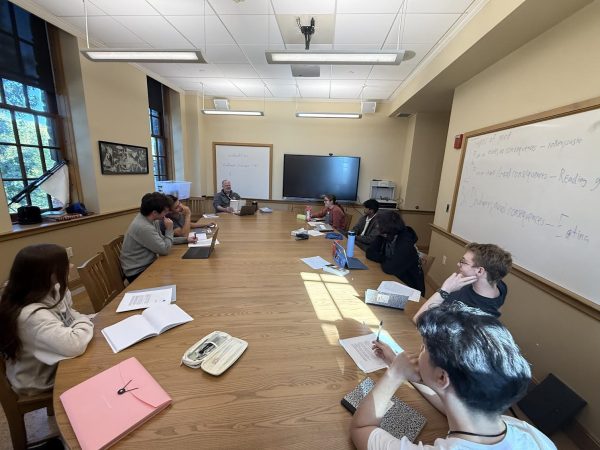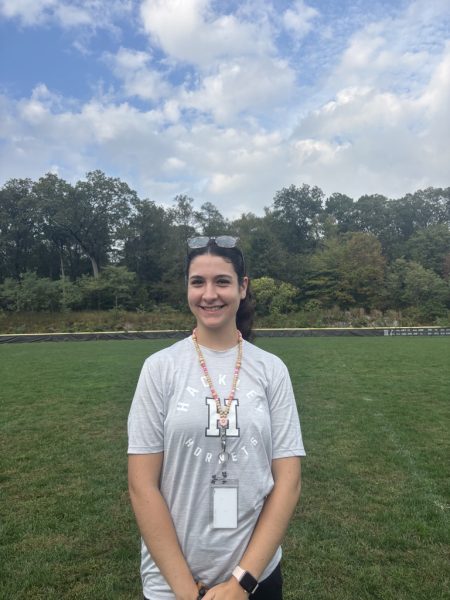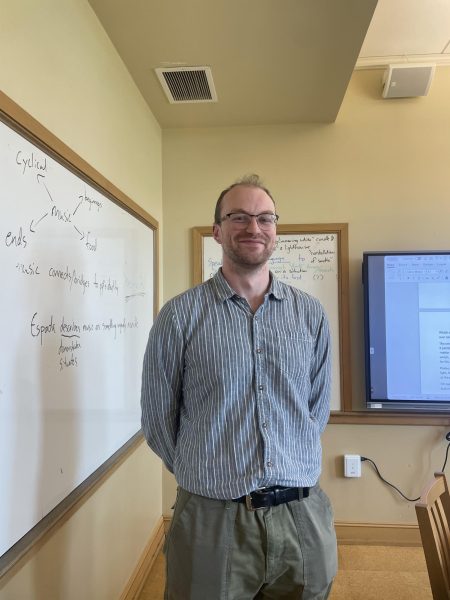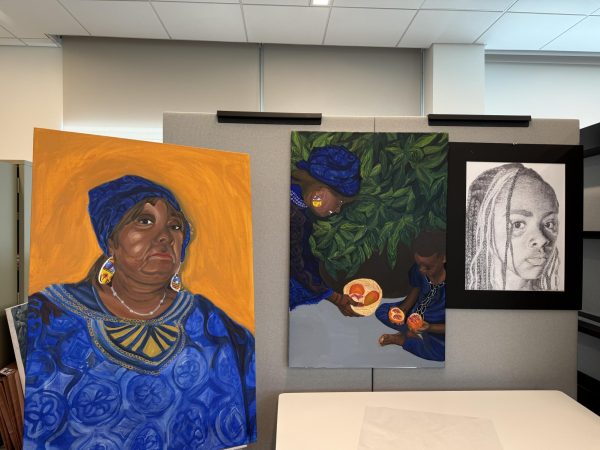Opera students at Hackley
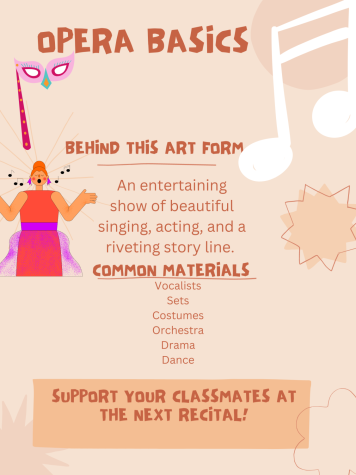 Picture yourself listening to a soprano sing a difficult passage of the Queen of the Night Aria in the Magic Flute opera at the MET, mesmerized by the beauty of her singing and enraptured by its thrilling plot. Stepping into an opera house isn’t the same thing as attending an orchestra concert with a seemingly high brow audience; on the contrary, it’s meant to entertain and make one laugh or cry; essentially, to put on a show.
Picture yourself listening to a soprano sing a difficult passage of the Queen of the Night Aria in the Magic Flute opera at the MET, mesmerized by the beauty of her singing and enraptured by its thrilling plot. Stepping into an opera house isn’t the same thing as attending an orchestra concert with a seemingly high brow audience; on the contrary, it’s meant to entertain and make one laugh or cry; essentially, to put on a show.
Opera includes singing and an orchestra, while also featuring sets, a rapturing plot, and beautiful, intricate costumes. This combination of immersive visual effects as well as props and the impressive vocal caliber of musicians produces a uniquely complex masterpiece.
“They put a lot of work into making it beautiful and real,” said junior Sophia Kliatchko who has been singing for four years.
Operas are accessible for anyone who wants to watch them. This is made possible through the fact that the plot is easy to follow thanks to summaries that are offered in programs, and coherent translations accompany them where they are easy to view. It is not necessary to understand Italian, German, French, or other foreign languages in order to be immersed in the plot and music offered by the opera as a result of these accommodations. Contrary to popular opinion, it can be just as easy to attend the opera as it would be to go to a play or other similar entertainment.
The topics featured in operas are also relatable to the general public in familiar ways that resemble a play, and can touch the lives of young people like Hackley students. Characters wrestle with issues like love, finding their place in a complicated world, cliques, loneliness, fitting in, and more. For example, the opera Tosca features relatable topics like love and jealousy, and adds other layers of plot like the “princess trapped in a tower” trope to make the production more dramatic and interesting. It can even relate to schoolwork and academic interests like learning a new language, poetry, drama, and the visual arts.
“For me, it’s a really healthy mix of everything I love about the humanities, and it’s just really fun to do all at once,” said senior Arushi Kaushik-Chandra who has been singing for six years.
Furthermore, operas aren’t only attended by nor meant for wealthy or older people. Opera tickets can be expensive depending on seating, but they are often cheaper than pop concert tickets, Broadway shows, and many other popular performances. “It feels like people create this elitism for themselves,” said Sophia. Going to the opera isn’t just an activity of a certain demographic or socioeconomic class, but can be enjoyed by all as was intended when they were composed.
Perhaps breaking this stereotype is a challenge, but Hackley provides many opportunities to explore this art form through musical events within the community. At the end of the year, student recitals can provide a taste of what opera has to offer, as well as the chorus program which presents varied styles and sounds in its repertoire. Alongside this, taking the chance to go listen to one of the best operas in the world in New York City could be an interesting or even transformative experience.

